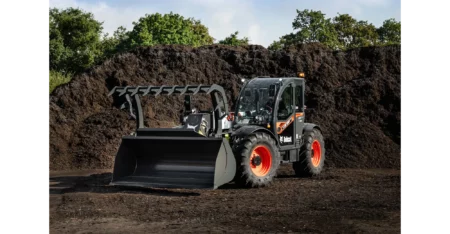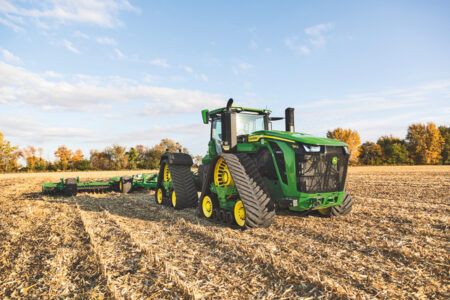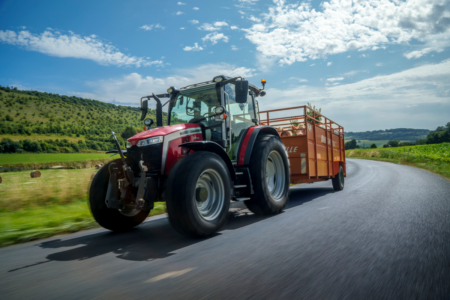So far, Kubota’s main markets for tractors have been Asia and the USA. However, the construction of a tractor factory in Bierne, France, means that the European market has become a stronger focus of the globalization strategy. The development center of the Japanese company was working at full speed before the first tractor rolled off the production line in France.
In order to comply with European standards, suppliers in a variety of trades were involved in the development of the new tractor from an early stage. This made it possible to benefit from the engineering and production expertise of companies such as component specialist Solvaro, based in Kirchheim, Germany, whose air grilles will cool engines with an output of up to 170hp.
The technical team at Solvaro was aware that an attractive design was just as important for European farmers as modern technology and high-quality workmanship. Many people consider their farm’s tractor to be something of an advertisement for their business. This is where many years of experience in the deep drawing of perforated metal came into play. Thermoformed parts give the bonnet the visual centerpiece of a tractor an especially striking appearance. For the Kubota M7001, a total of six parts integrated into the plastic bonnet give the vehicle a distinctive face. The components feature a Hv 22.5 perforation, providing excellent stability despite an air passage level of 64%.
Several prototypes of each component are usually necessary before series production, and this was also the case for the air grilles for Kubota. In such a process, the design is optimized, assemblies are fine-tuned, and different materials are used before field tests reveal areas where finishing touches are necessary.
“Tooling costs can quickly accumulate during this stage,” explains Gerhard Bullinger, managing director of Solvaro.
“In order to save time and money, we rely on alternative techniques when producing our prototypes.”
This may also lead to a solution for series production, as in the case of three exhaust cover parts for the Japanese manufacturer. When bending parts that are 1.5mm thick with a Rv 57 perforation, there is no need at all for an expensive thermoforming tool. Instead, they are bent using a more affordable tool that is specially designed for the job. In order to withstand dirt, stone impacts and all types of weather, all parts are coated and supplied ready for assembly.
“The result of our work on the Kubota M7001 shows us how important synergies and efficiency are when it comes to intensive cooperation with our customers,” concludes Bullinger.
September 22, 2016




